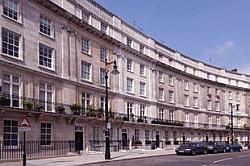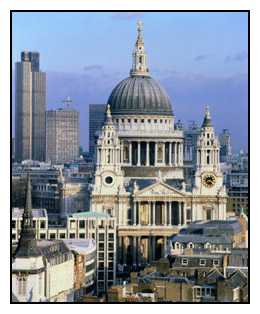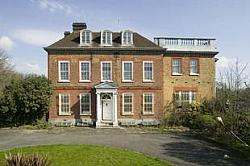98: London - is it a good place to property invest?
12-09-2006
PropertyInvesting.net team
 The population of London is due to rise by 800,000 in the next 10 years - and there are very few properties being built. Pressure on land, planning back-logs and green-belts mean this is already a severe housing shortage - one can describe this as a housing crisis. Only 7% of properties in London are one bedroomed flats - there are huge numbers of single people who want to live on their own or with a partner in their own home. Most flats being built are two bedroomed flats. Very few houses are being built - houses of course are very popular with families and wealthy individuals and couples.
The population of London is due to rise by 800,000 in the next 10 years - and there are very few properties being built. Pressure on land, planning back-logs and green-belts mean this is already a severe housing shortage - one can describe this as a housing crisis. Only 7% of properties in London are one bedroomed flats - there are huge numbers of single people who want to live on their own or with a partner in their own home. Most flats being built are two bedroomed flats. Very few houses are being built - houses of course are very popular with families and wealthy individuals and couples.
Over the last ten years - many things have worked in London's favour:
- The stringent Sabine-Oxley regulation inflicted on US companies has driven many investors and companies to prefer London as a place to reside - and trading in London has grown because the regulatory environment is less stifling.

- USA's popularity has waned with many Middle East investors after tensions in the last few years - more money has been entering London.
- London is English speaking and has become a base for many wealthy individuals who operate their companies and investments from London - they can trust the environment and like the quality of financial services and lack of corruption and poor practice.
- The cosmopolitan cultural environment make international people feel 'at home'.
- Many foreign billionaires find their tax treatment very favourable.
- Many foreign billionaires find it an easy way to protect their wealth - the law, civil rights and fairness of the society attracts these high net worth individuals.
- West London has always been, and will always be, a very popular area for expatriates of all nationalities.
- The West End theatres and quality of entertainment is high - it's a fun and prestigious place to live.
- It's easy to visit and start living in London if you are a wealthy expatriate - air links and communications with all major global cities and countries are exceptional.
- Safe and secure political environment - relatively stable tax and financial regime.
- Wall of money from city bonuses and global mergers and acquisitions activity.

Because of these reasons, there has been a flood of money into London. Much of the cash being put into property comes from abroad - and considered by many a safe haven. The huge growth in population, employment, banking and financial services has lead to strong GDP growth. It's difficult to find numbers - but we believe London's GDP is growing at about 4% per annum, whilst the north of England is growing at 1.5 to 2% per annum. If you consider wage inflation running at 4% with big city bonuses and very little housing being built - it does not take a rocket scientist to work out that property prices will rise.
 Consider this - as interest rates have risen from 4.5% to 5.0% property prices have accelerated. If the UK GDP comes down and inflation drops to 2%, if interest rates then drop to say 4.0% - just imagine the impact this would have on the housing market in London. Affordability would improve, and prices would rise further. And remember, if the UK GDP is 1.5%, its likely London's GDP will be double this a 3%. I hope you can see there is a dual economy - the north and south. The Bank of England considers both in a weighted sense and will not want the north to dip into recession. Hence as the north slows, interest rates will likely drop slightly leading to further house price rises in London.
Consider this - as interest rates have risen from 4.5% to 5.0% property prices have accelerated. If the UK GDP comes down and inflation drops to 2%, if interest rates then drop to say 4.0% - just imagine the impact this would have on the housing market in London. Affordability would improve, and prices would rise further. And remember, if the UK GDP is 1.5%, its likely London's GDP will be double this a 3%. I hope you can see there is a dual economy - the north and south. The Bank of England considers both in a weighted sense and will not want the north to dip into recession. Hence as the north slows, interest rates will likely drop slightly leading to further house price rises in London.
In summary, because of the emergence of London as the global centre for finance and business, low numbers of homes being built, increasing population, high GDP, high employment and infra-structure developments (e.g. 2012 Olympics) we see demand for one bedroom flats in central and peripheral areas remaining strong for a number of years and prices continuing to climb - by 7% in 2007. Some areas should rise even faster - e.g. Clapham, Battersea, Bow, Shoreditch, Peckham, Harringay, Hackney, Chiswick, Kennington, Lewisham, Stratford and Slough along the M4 corridor.

